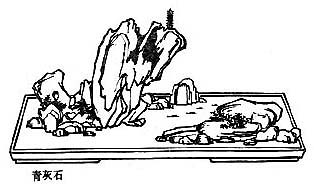論
語
Lun Yu 
 – The Analects of Confucius
– The Analects of Confucius
The Master discusses with his disciples and unveil his preoccupations with society. Tr. Legge (en), Lau (en) and Couvreur (fr).
Lunyu II. 18. (34)
The end in learning should be one's own improvement, and not emolument.
1. Tsze-chang was learning with a view to official emolument.
2. The Master said, "Hear much and put aside the points of which you stand in doubt, while you speak cautiously at the same time of the others:– then you will afford few occasions for blame. See much and put aside the things which seem perilous, while you are cautious at the same time in carrying the others into practice:– then you will have few occasions for repentance. When one gives few occasions for blame in his words, and few occasions for repentance in his conduct, he is in the way to get emolument."
Legge II.18.
Tzu-chang was studying with an eye to an official career. The Master said, 'Use your ears widely but leave out what is doubtful; repeat the rest with caution and you will make few mistakes. Use your eyes widely and leave out what is hazardous; put the rest into practice with caution and you will have few regrets. When in your speech you make few mistakes and in your action you have few regrets, an official career will follow as a matter of course.'
Lau [2:18]
Tzeu tchang étudiait en vue d'obtenir une charge avec des appointements. Le Maître lui dit : « Après avoir entendu dire beaucoup de choses, laisse de côté celles qui sont douteuses, dis les autres avec circonspection, et tu ne t'en blâmeras pas. Après avoir beaucoup vu, laisse ce qui serait dangereux, et fais le reste avec précaution ; tu auras rarement à te repentir. Si tes paroles t'attirent peu de blâme et tes actions peu de repentir, les appointements viendront d'eux-mêmes. »
Couvreur II.18.
Suatu pengembangan belajar dari penelitian.
Suatu pepatah ‘Masih merasa banyak kekurangan sehingga ada keragu-raguan, berhati-hatilah dengan rumusan yang masih dipertahankan, prinsipnya ada perlakuan khusus yang masih terabaikan, banyak terlihat kekurangan akan menjadi malapetaka, berhati-hatilah dengan kepuasan berlebihan dan mengabaikan kegagalan.
Rumuskan fakta yang terabaikan, rasa cepat puas dan mengabaikan akan menimbulkan penyesalan, penelitian akan berlangsung seperti ini selama-lamanya’.
b. Nabi bersabda : "Banyaklah mendengar, sisihkan hal yang meragukan dan hati-hati membicarakan hal itu. Dengan demikian akan mengurangi orang lain menyalahkan. Banyaklah melihat, sisihkan hal yang membahayakan dan hati-hatilah menjalankan hal itu. Dengan demikian akan mengurangi kekecewaan sendiri. Dengan pembicaraan tidak banyak mengandung kesaahan dan perbuatan tidak banyak menimbulkan kekecewaan, di situlah terletak rahasia kedudukan".
l'homme honnorable se cache derrière le soleil couchant, le petit tigre du désert à la volonté d'aider la grande pantère noire et le petit mouton.
Seul l'avenir et le passé pourra nous enseigner le savoir des anciens.

The Analects of Confucius – Lun Yu II. 18. (34) – Chinese on/off – Français/English
Alias the Lunyu, the Lun Yü, the Analects, les Entretiens du maître avec ses disciples.
The Book of Odes, The Analects, Great Learning, Doctrine of the Mean, Three-characters book, The Book of Changes, The Way and its Power, 300 Tang Poems, The Art of War, Thirty-Six Strategies
Welcome, help, notes, introduction, table.
Index – Contact – Top























